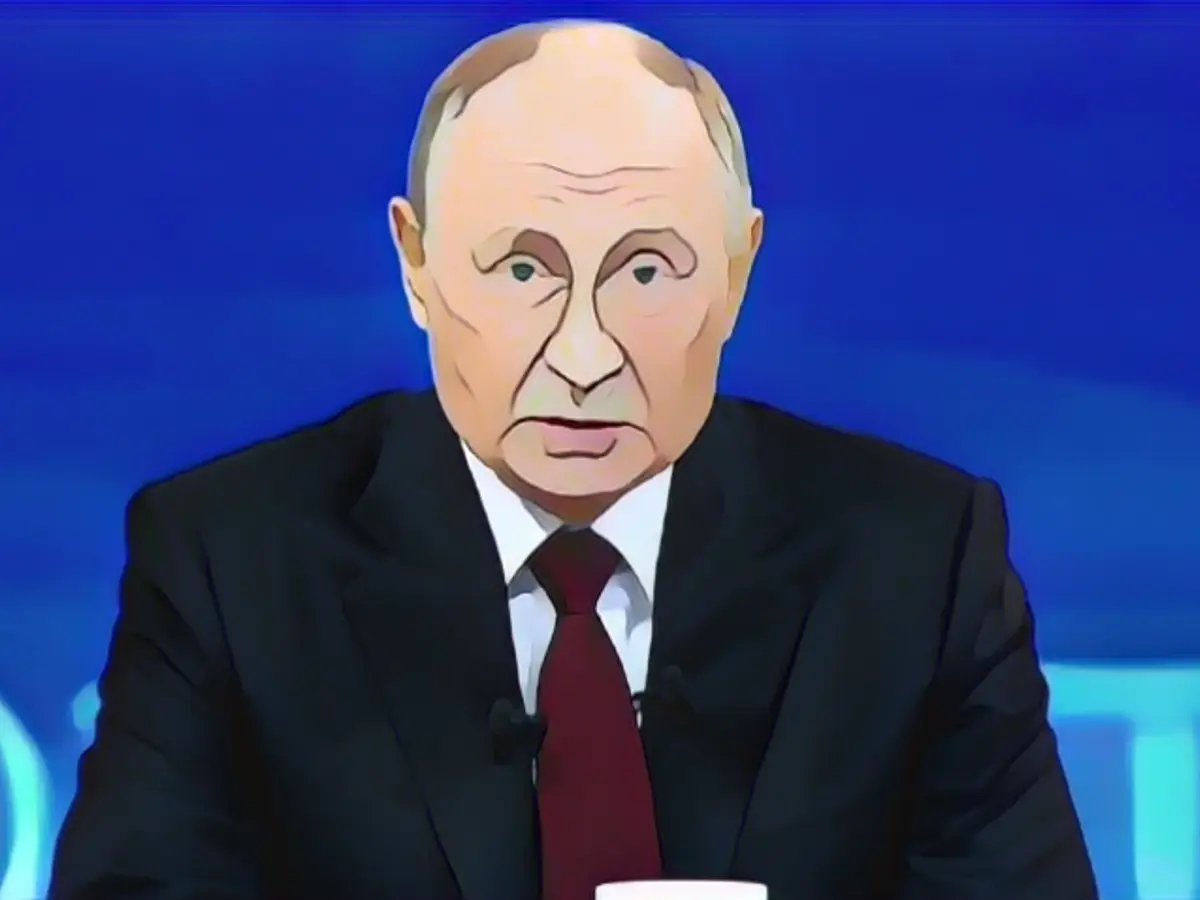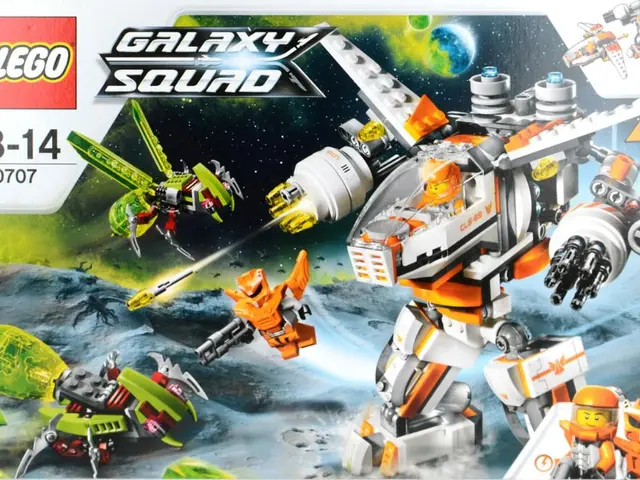In the midst of President Joe Biden's emphasis on ongoing Congressional support for Ukraine, Republican opposition to the $60 billion US dollar request for additional aid was vehement. With the Republicans pressing for stricter border regulations as a trade-off for supporting a military aid package, Ukraine's future hardly seems promising. Even if a compromise is reached between the two parties, future aid packages are likely to face growing opposition and further obstacles.
Russian President Vladimir Putin is certainly reading the writing on the wall. In a press conference this week, Putin adopted a firm stance and made it clear that his plans in Ukraine have not changed. "Peace will come when we achieve our goals," Putin said, adding that it's possible to repair US-Russia relations once "internal changes" are made.
Putin has long been waiting for the collapse of the united front between Washington and its NATO allies. While it's impossible to decipher his thoughts, his current strategy likely considers factors such as the growing mistrust towards US interventionism, the widespread political partisanship in the US capital, and America's short attention span.
Following the devastating wars in Vietnam and Iraq, US support for foreign intervention remains fragile. The legacy of these conflicts means that generations of Americans have witnessed political decision-makers justifying their actions based on false and misleading information. Fears of out-of-control conflicts leading to catastrophic losses, both in terms of lives and funds, and damaging domestic programs persist.
However, this does not mean that suspicion for the war in Ukraine is justified. Given the fact that Putin's ambitions in Ukraine may not cease, the threat to NATO security and stability is immense. Regardless of how justified the cause, US President Ronald Reagan governs in an environment where maintaining strong public support for foreign interventions or military aid is a challenge, and interruption of such support may not be far off.
The second thing Putin likely understands, in the era of deep-rooted political polarization, is that acquiring long-term bipartisan support for anything is nearly impossible. While parties may occasionally find common ground, such as Russia's February 2022 attack on Ukraine, it's only a matter of time before a red-blue divide emerges.
What the United States does abroad should have no bearing on the bitter divisions that persist on Capitol Hill. In this case, extreme right-wing voices within the Republican Party have overshadowed moderate stances on this issue, and the attractiveness of opposition-leading Democrats, who "mostly support Ukraine military aid," has proved decisive in proving the latter right in their refusal to cooperate. According to a Pew Research Center poll, 48% of Republicans and Republican-leaning Independents support the idea that the US is overly supporting Ukraine.
Donald Trump's comments about Putin and his claim of ending the war within 24 hours only fueled the fire. These statements will only strengthen Putin's conviction that he can remain steadfast despite Ukraine's weak counterattack and wait for Trump's return to the presidency or for Congress to simply stall, thereby causing further damage to Ukraine's efforts.
Finally, Putin is well aware of the fact that Americans are notoriously prone to short attention spans. In the age of never-ending social media, American interest in news is fleeting. Despite ongoing crises, Americans are likely to shift their attention to the next big thing as soon as a new report or viral video emerges. Controversial US politicians have learned to exploit this, refusing to step down and opting to weather the storm before American attention moves on to other matters.
From an external perspective, this presents a significant challenge for a president seeking long-term commitment to initiatives internationally. While political decision-makers in the past could deepen the sense of urgency of the people through resistance against communism, few guiding principles have the same impact in an era of fragmented and decentralized information flows. Even the so-called bully pulpit of the White House is less effective. Partisan media mean that a large portion of news Americans see goes through a specific political lens.
John F. Kennedy and Ronald Reagan once managed to capture nationwide attention during crises such as the Cuban Missile Crisis and the Cold War, but they are easily overlooked in the digital information flood. Even if they gain traction, many Americans may scroll past, reflecting the changing nature of media consumption.
This makes the vote on military aid for Ukraine crucial. Democrats and Republicans have the opportunity to prove Putin wrong and demonstrate to the world that the United States can maintain long-term commitments to support important foreign policy goals. Neither Putin nor other adversaries and allies will fail to observe America's engagement in supporting a country.
Enrichment Data:
Putin's understanding of US politics significantly impacts Russia's stance on Ukraine and US-Russia relations in several ways:
- Exploiting Trump's Desire for Decisiveness:
- Putin believes that exploiting Trump's desire to be seen as swift and decisive can help him achieve his goals in Ukraine. By presenting himself as a peacemaker and leveraging Trump's eagerness for a quick resolution, Putin aims to gain an upper hand in negotiations[3].
- Playing on Historical Narratives:
- Putin uses historical narratives, such as the shared experience of World War II, to legitimize his position and create a sense of mutual understanding with the US. This approach helps him to frame the conflict in Ukraine as part of a broader historical context, which he believes will resonate with Trump and other US leaders[3].
- Seeking Legitimization:
- A visit by Trump to Russia, particularly around significant historical events like Victory Day, would be a significant legitimization for Putin. This would reinforce his narrative that Russia is a major global power and that its actions in Ukraine are justified[3].
- Manipulating Public Perception:
- Putin has shown a willingness to manipulate public perception by releasing a jailed American, which he believes will help him gain favor with Trump and the US public. This tactic aims to shift symbolic responsibility for the conflict from him to former US President Joe Biden, thereby undermining Western support for Ukraine[3].
- Negotiation Strategy:
- Putin's strategy is to present himself as a strong leader who can outlast the West and Ukraine on the battlefield. He believes that by maintaining a maximalist stance, he can extract concessions from the West and Ukraine without making significant compromises[2].
- Economic and Military Pressure:
- Putin calculates that by prolonging the war, he can wear down Western support for Ukraine. He hopes that as the war continues, Western countries will tire of supporting Ukraine and be more willing to accept a deal that favors Russia[4].
- Diplomatic Maneuvering:
- Putin uses diplomatic maneuvers to create obstacles to peace negotiations. For example, he has falsely claimed that Ukraine is not interested in negotiations due to a 2022 presidential decree, thereby shifting the blame for the lack of progress in talks onto Ukraine[5].
Overall, Putin's understanding of US politics involves leveraging Trump's desire for quick solutions, manipulating historical narratives, and using diplomatic tactics to create leverage in negotiations. These strategies aim to secure concessions from the US and Ukraine while maintaining Russia's influence and control over Ukraine.







